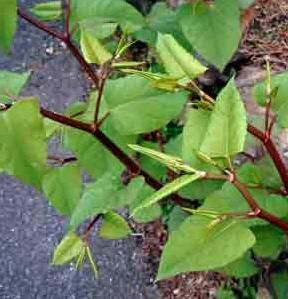The HTA says it broadly welcomes the “balanced and objective” findings in the Environmental Audit Committee Report: Invasive non-native species, published last weekIn a statement, HTA said: “We fully support the recommendation that Government should take a coherent joined-up approach to the problems around managing invasive species. There are common elements in the currently separate approaches being taken to manage biosecurity, pollinators and invasives.”
 Advocating “a more broad-based landscape approach”, the association said it realised this may not be easy or quick to do. “We welcome the recognition of the need to raise public awareness and would encourage this in addressing plant health issues as well as invasive species. Any public awareness campaign needs to be properly resourced and needs to avoid scare-mongering, which could prove counter-productive.”
Advocating “a more broad-based landscape approach”, the association said it realised this may not be easy or quick to do. “We welcome the recognition of the need to raise public awareness and would encourage this in addressing plant health issues as well as invasive species. Any public awareness campaign needs to be properly resourced and needs to avoid scare-mongering, which could prove counter-productive.”
HTA backs the recommended targeted blacklisting. The Japanese Knotweed example (pictured left), where a significant business has developed around one piece of legislation on invasive non-natives, is, they say, a useful illustration of the unintended consequences of regulation.
They also welcomed the recommendation for action plans for those species on the EU and national lists, to enable more targeted and effective funding allocation. “This will go a long way to prioritising control action and not wasting resources where there are no clear outcomes.”
Martin Emmett, who represented HTA at the Select Committee hearing, said: “During the Select Committee's session with the HTA it was clear that they were prepared to consider all possible approaches to tackling this issue – including some that would have been very unpalatable to gardeners and growers. It is now good to see final conclusions that are pragmatic, proportionate and likely to constructively engage both consumer and industry in dealing with known threats from invasive species.”